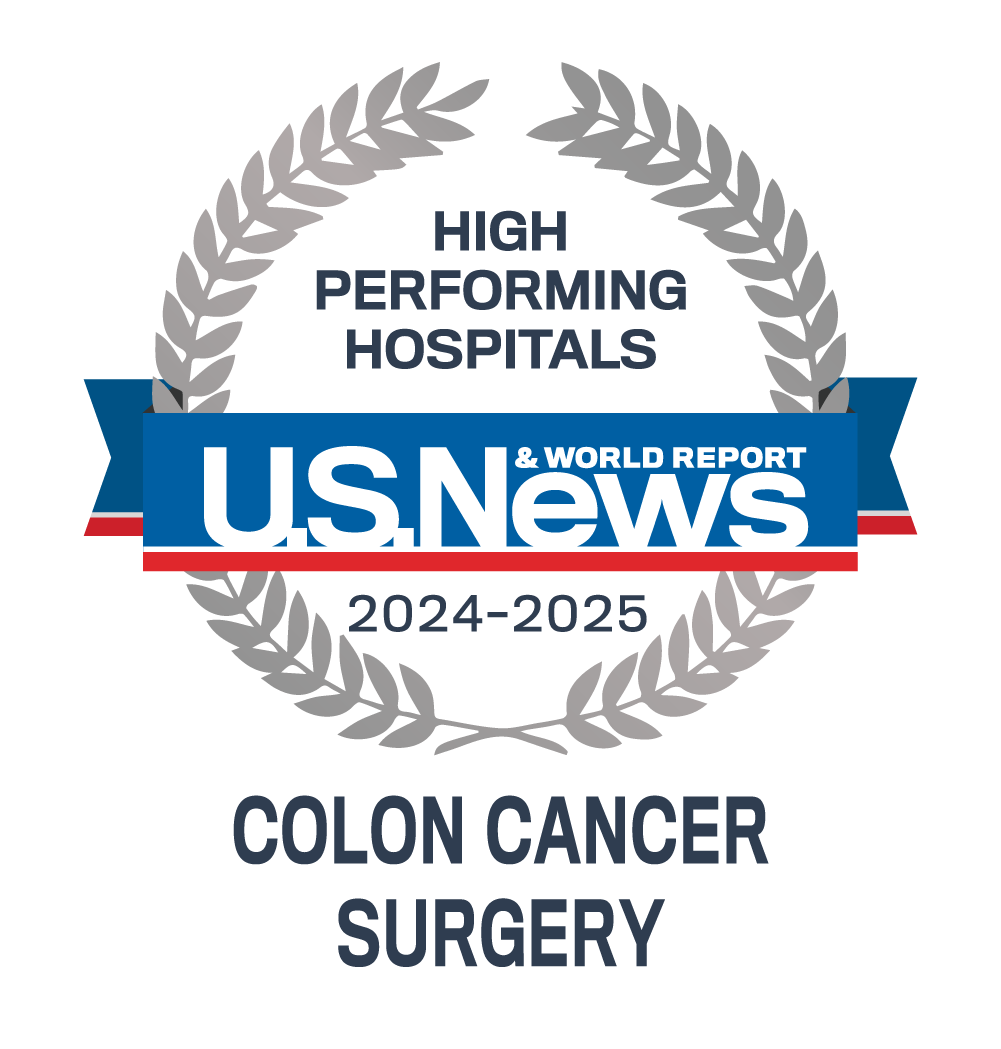Colon cancer and rectal cancer, often referred to collectively as colorectal cancer, are cancers that affect your large intestine. Colorectal cancers are increasingly common and often deadly. However, colon and rectal cancers are among the few cancers that are preventable.
In 2021, colorectal cancer was the second leading cause of cancer deaths in Kentucky.

 Colon and Rectal Cancer at UK Markey Cancer Center
Colon and Rectal Cancer at UK Markey Cancer Center
Markey's gastrointestinal cancer team provides expert consultation and ongoing care for patients with cancers of the colon and rectum. We offer state-of-the-art gastrointestinal cancer screening and diagnoses as well as the latest advances in surgical, radiation and chemotherapeutic interventions. Our team has special expertise in extensive radical surgery on the colon and rectum, including total proctectomy and J-pouch reconstruction for rectal cancer; total rectal resection using the colo-anal reconstruction technique; nerve-preserving surgery in rectal cancer to preserve sexual function and "tumor downstaging" using innovative preoperative chemoradiation therapy programs.
Markey has provided state-of-the-art cancer care for more than 30 years, and we are proud to be the only cancer center in Kentucky designated by the National Cancer Institute. Since 2017, Markey Cancer Center has been nationally recognized as a top 50 cancer center by U.S. News & World Report.
Your colon is also called your large intestine. Your rectum is the lowest part of the colon and leads to the anus. All of this is part of your gastrointestinal (GI) tract. Because of the nature of the colon, most people who develop colon or rectal cancer don’t feel any pain until the cancer is very advanced. This is why screening for colorectal cancer is crucial.
Some patients with symptoms or signs of colon cancer or rectal cancer experience:
- Abdominal pain and tenderness in the lower abdomen
- Blood in the stool or rectal bleeding
- Diarrhea, constipation or other changes in bowel habits that last more than a few days
- Narrow stools
- Weakness and fatigue
- The feeling that a bowel movement has not emptied the bowel completely
- Unexplained weight loss
Outcomes for colon and rectal are excellent, and when localized to the colon or rectum, five-year survival rates are 91 percent for colon cancer and 89 percent for rectal cancer. Regular colonoscopies can also alert you or your physician to the presence of precancerous growths called polyps, which can often be removed during the colonoscopy. For more information about colorectal cancer survival rates, visit the American Cancer Society.
You can lower your risk of cancer by taking steps to build a healthy lifestyle. Here are some ways you can lower your risk for this disease, as well as improve your overall basic health:
- Avoid using tobacco products. Tobacco has been tied to multiple cancers, and it is responsible for 90 percent of lung cancer deaths.
- Stay physically active. Your physical activity is related to risk for colon and breast cancer. Excess weight gained from inactivity increases the risk of multiple cancers.
- Limit alcohol consumption. It is important to be mindful of how much alcohol you drink. Alcohol intake, even in moderate amounts, can increase the risk for colon, breast, esophageal, and oropharyngeal cancer.
- Learn about screenings. Your primary care doctor can recommend appropriate cancer screenings based on your age, personal risk and family history.
- A family history of colorectal cancer or precancerous polyps
- A personal history of colorectal polyps
- A personal history of inflammatory bowel disease
- Being overweight
- Certain genetic mutations
- Drinking alcohol
- Eating a diet high in red or processed meats
- Having Type 2 diabetes
- Not exercising regularly
- Smoking
You cannot change some risk factors for colorectal cancer, but others you can. If you have a family history of the disease, making lifestyle changes, such as quitting smoking, losing weight and getting more exercise, will lower your risk.
- For your first visit, you will be directed to the Multidisciplinary clinic in the Whitney-Hendrickson Building.
- You can register at the front desk or registration area, where a Markey team member will help guide you through your appointment.
- Several parking options are available to patients of Markey Cancer Center.
- Please remember to bring your patient packet with the completed forms. These items will help your doctor learn more about your case and determine the best plan for your care.
- To meet our patient needs, UK HealthCare accepts many forms of insurance.
Clinical trials are research studies aimed at evaluating medical, surgical or behavioral interventions to determine if a new treatment is safe and effective. At Markey, we are advancing cancer care and research to prevent, detect and treat one patient at a time. As a patient at Markey, you have a team of people looking at your individual case, applying the most recent cancer knowledge to give you the best chance of survival.
Markey has more open clinical trials than any other cancer center in the region, giving you access to some of the most advanced options available. Learn more about ongoing clinical trials for treating colon cancer and rectal cancer.




























